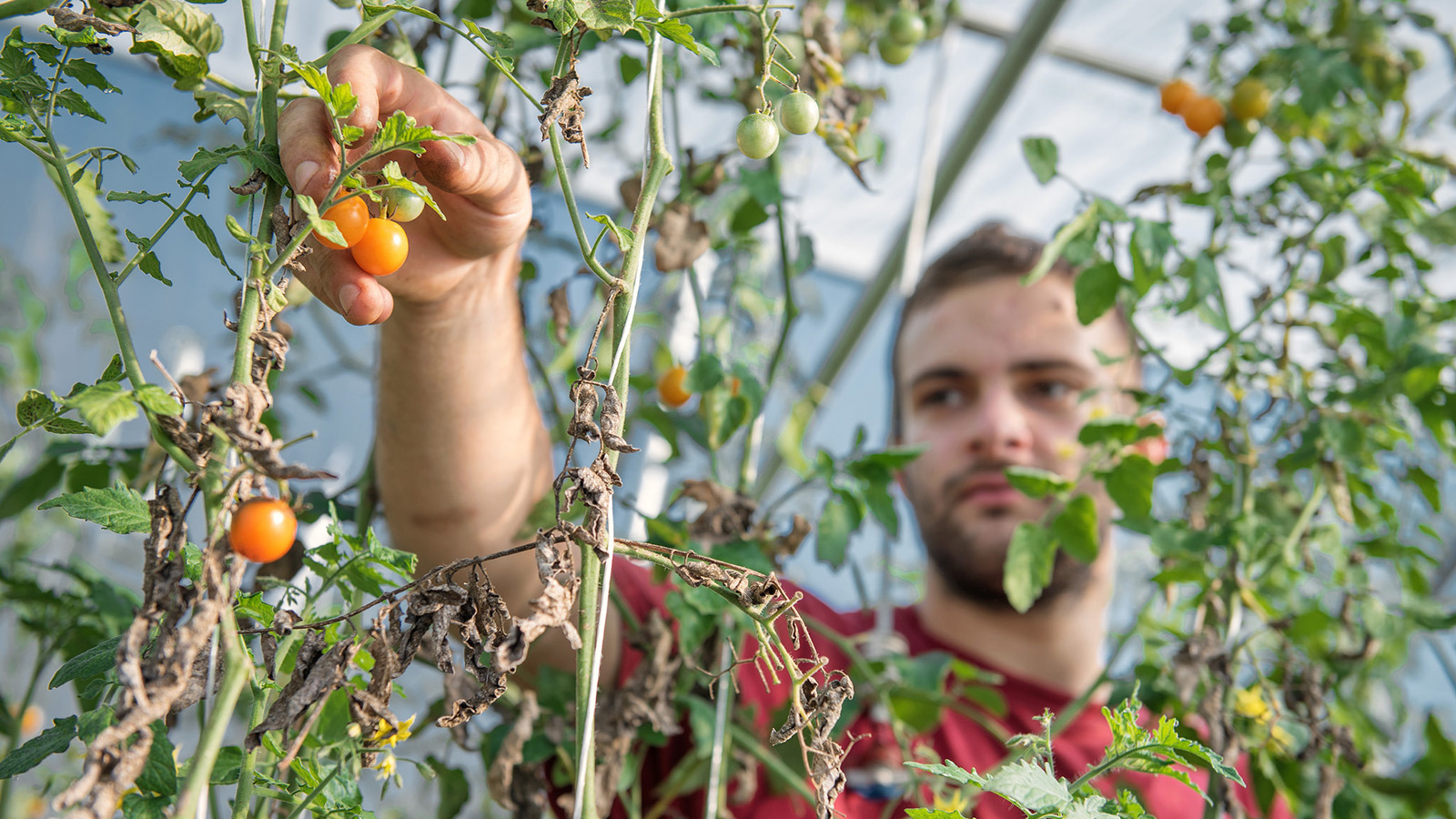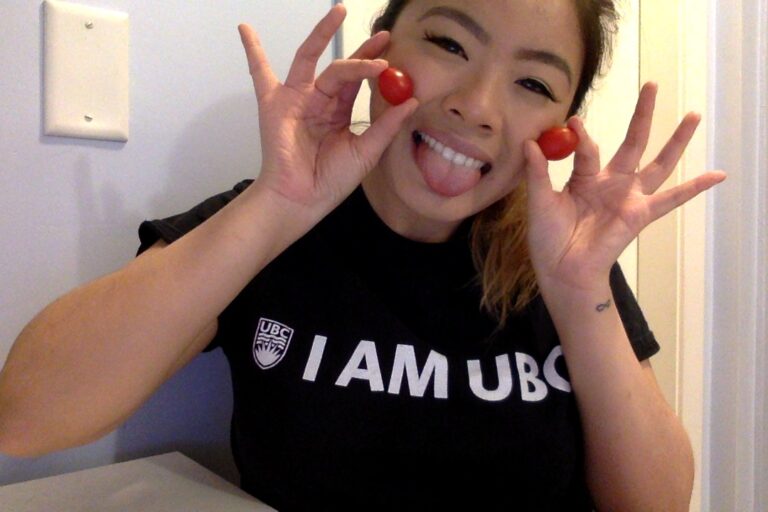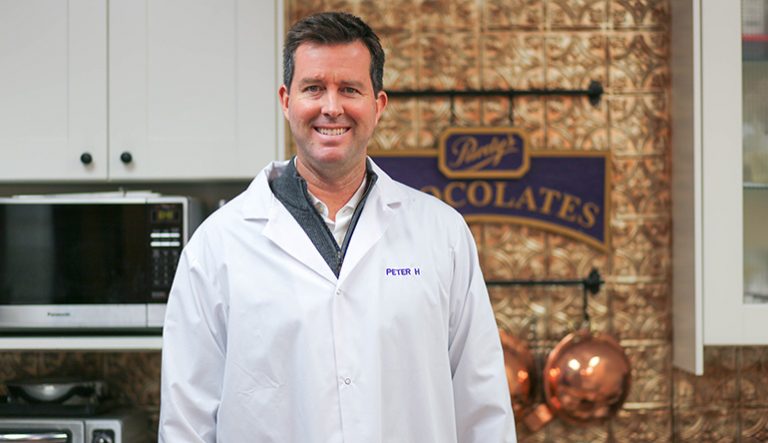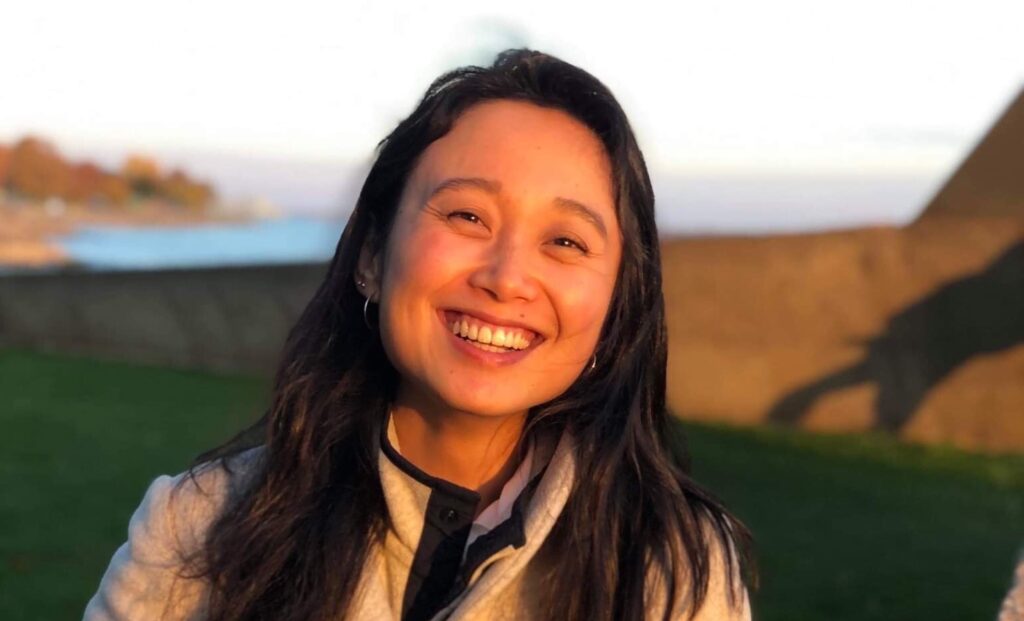
Whether you dream of helping reduce the demands on our climate systems, or are driven to solve the world’s food sustainability crisis, you’ll find a program for you at UBC. As a member of the Faculty of Land and Food Systems – known for being one of UBC’s friendliest faculties – you’ll study alongside other students who are dedicated to using science to meet society’s urgent needs, and passionately exploring how humans interact with the natural world.
Explore your program options
All students in the Land and Food Systems faculty and also can apply to dual degrees with the Master of Management.
Bachelor of Science in Applied Biology
Applied Animal Biology
If you want to study or work with animals, UBC Vancouver’s Applied Animal Biology program will be a great fit for you. The program gives you a broad background in the fundamentals of animal behavior and physiology as they apply to farm, companion, and other animals. You’ll learn about the role of animals in human society, and examine the ethical, environmental, and other issues that arise from our connection with them. As part of your program, you’ll spend time doing hands-on field work and research in wildlife rehabilitation centres, laboratories, animal shelters, and on farms, preparing you for a career in the field. This program also allows you to complete the necessary prerequisites for veterinary medicine.
The student scoop
Meet Afnan, who, while studying Applied Animal Biology, was a field research assistant in Northern BC and worked with the Beaty Biodiversity Museum’s cowan tetrapod collection. These hands-on learning experiences allowed her to see what she learned directly applied to the community.
Sustainable Agriculture and Environment
In the Sustainable Agriculture and Environment program, you’ll tackle a range of environmental challenges while tailoring your studies to your particular interests – from agricultural production to soil and water resources management to climate change. You’ll learn how to produce food in a way that protects our soils, water, and air; how to manage biodiversity and habitats for the organisms we rely on to help us grow our food; and which agricultural practices are best for urban environments. You’ll have access to a living laboratory for experiential learning at the Centre for Sustainable Food Systems, located at the UBC Farm on UBC’s Vancouver campus. As a graduate of this program, you’ll be primed for a professional career focused on shaping a more sustainable, food-secure future.
Bachelor of Science in Food, Nutrition, and Health
Dietetics
Dietetics is an in-demand profession that’s growing fast across Canada and the world. UBC Vancouver’s Dietetics program – the only Dietetics program in BC – will teach you how to improve and promote health through optimized food and nutrition, and to fill a variety of roles in nutrition care, management, or population and public health. You’ll graduate from this professional program as a registered dietitian with a strong understanding of human nutrition and how to manage sustainable food systems.
The student scoop
As well as working on ways to prevent cardiovascular disease and diabetes through studying the Western diet, Lucy found that she was able to learn about social justice issues, psychology, anthropology, and more as part of her program.
Food, Nutrition, and Health
The Food, Nutrition, and Health program gives you the flexibility to pursue your interests while gaining a deeper knowledge of issues related to food production, food security, and the role of nutrition in disease prevention. You’ll get to choose from a large variety of electives, and you’ll study a curriculum of your own design that will prep you for a career in the food and health sectors. Food, Nutrition, and Health students can apply to dual degrees with Bachelor of Education or Master of Management, or one of six minors to complement their program. The Food, Nutrition, and Health program is also a great foundation for students interested in medical school, dentistry or nursing.
“Being in the Land and Food Systems Faculty has taught me and challenged me to employ systems-thinking when discussing topics that I care deeply for, such as food security, public health and sustainability.”
– Rachel Ma, Food, Nutrition, and Health
Food Science
Calling all foodies! Take your passion for food to the next level in UBC Vancouver’s Food Science program, where you’ll discover the chemistry and microbiology of food, its nutritional and sensory properties, and how it’s engineered and processed. You’ll explore scientific topics such as the concepts and controversies in nutrition and how to prevent food-borne illnesses, and you’ll also gain hands-on experience through food-specific lab courses and community-based learning in sustainability. When you graduate, you’ll be ready for a number of careers in the food industry – an exciting field that’s undergoing rapid change.
The student scoop
Meet Peter Higgins, a UBC Food Science grad who became one of the top chocolate scientists at Purdys.
Nutritional Sciences
In Nutritional Sciences, you’ll delve into the science of the human digestive system, and discover how our bodies actually metabolize and use nutrients. You’ll also learn more about the function of nutrients in health and disease, and study nutritional requirements and recommendations in depth. As part of the program, you’ll find out about the methods of how we produce and distribute food, and what impact that has on food availability – helping you to solve some real-world challenges.
The student scoop
Meet Brenna Han, who used her Nutritional Sciences degree to get into medical school.
Food and Nutritional Sciences
The Food and Nutritional Sciences program is a double major which combines the Food Science and the Nutritional Sciences programs. As part of the degree, you’ll discover the chemistry and microbiology of food, its nutritional and sensory properties, and how it’s created and processed. You’ll also work on understanding the function of nutrients in health and disease, and people’s nutritional requirements. At the end of the program, you’ll graduate ready for a career in the food and nutrition industries or grad studies in health sciences.
“The hands-on learning experiences available through the LFS program provided me with the opportunity to apply that knowledge, which in turn helped set me up for success in my career.”
– Lauren Rappaport, Food and Nutritional Sciences alumni



